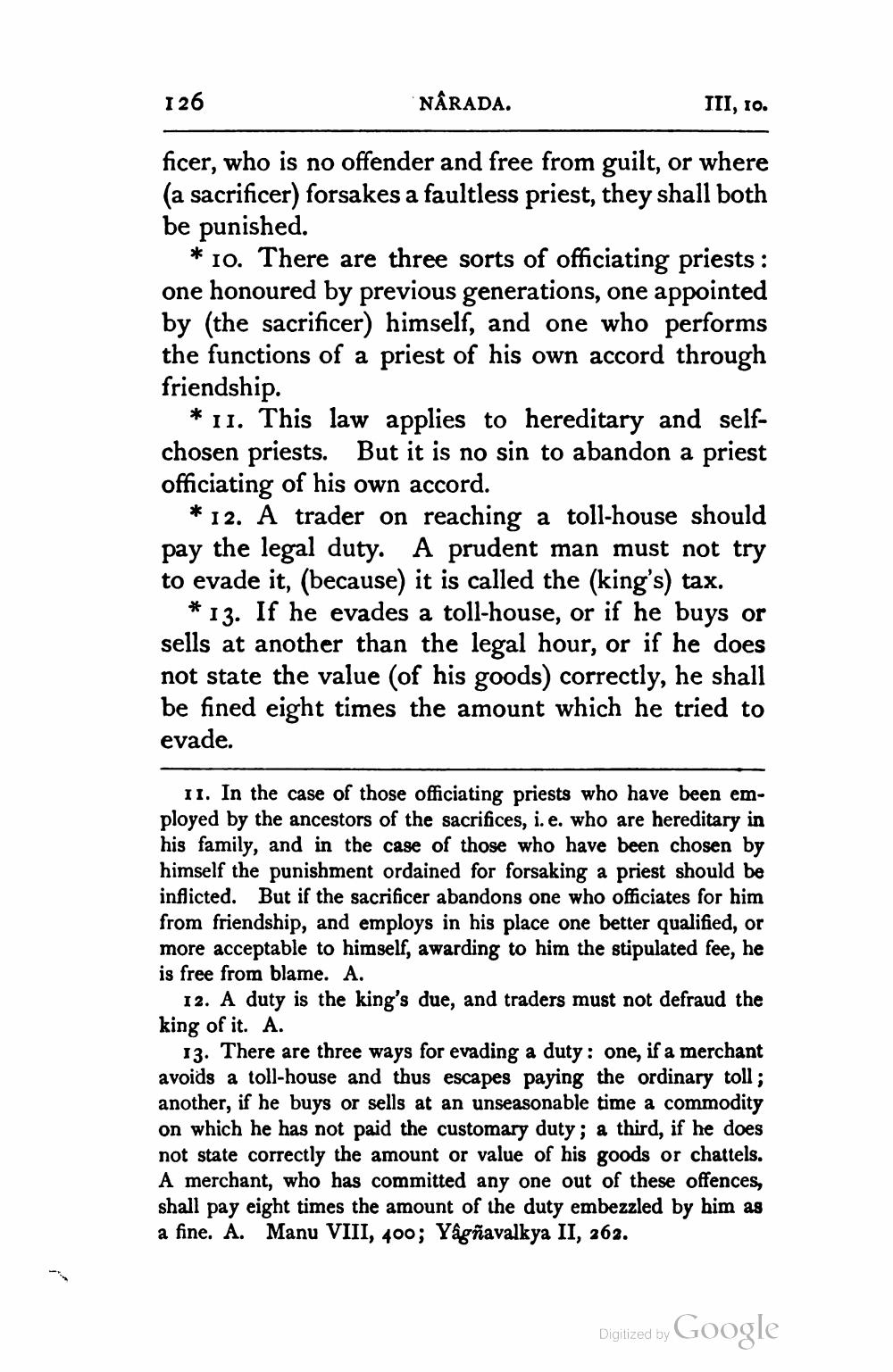________________
126
NÂRADA.
III, 1o.
ficer, who is no offender and free from guilt, or where (a sacrificer) forsakes a faultless priest, they shall both be punished.
*10. There are three sorts of officiating priests: one honoured by previous generations, one appointed by (the sacrificer) himself, and one who performs the functions of a priest of his own accord through friendship.
*11. This law applies to hereditary and selfchosen priests. But it is no sin to abandon a priest officiating of his own accord.
* 12. A trader on reaching a toll-house should pay the legal duty. A prudent man must not try to evade it, (because) it is called the (king's) tax.
* 13. If he evades a toll-house, or if he buys or sells at another than the legal hour, or if he does not state the value (of his goods) correctly, he shall be fined eight times the amount which he tried to evade.
11. In the case of those officiating priests who have been employed by the ancestors of the sacrifices, i.e. who are hereditary in his family, and in the case of those who have been chosen by himself the punishment ordained for forsaking a priest should be inflicted. But if the sacrificer abandons one who officiates for him from friendship, and employs in his place one better qualified, or more acceptable to himself, awarding to him the stipulated fee, he is free from blame. A.
12. A duty is the king's due, and traders must not defraud the king of it. A.
13. There are three ways for evading a duty: one, if a merchant avoids a toll-house and thus escapes paying the ordinary toll; another, if he buys or sells at an unseasonable time a commodity on which he has not paid the customary duty; a third, if he does not state correctly the amount or value of his goods or chattels. A merchant, who has committed any one out of these offences, shall pay eight times the amount of the duty embezzled by him as a fine. A. Manu VIII, 400; Yagñavalkya II, 262.
Digitized by Google




